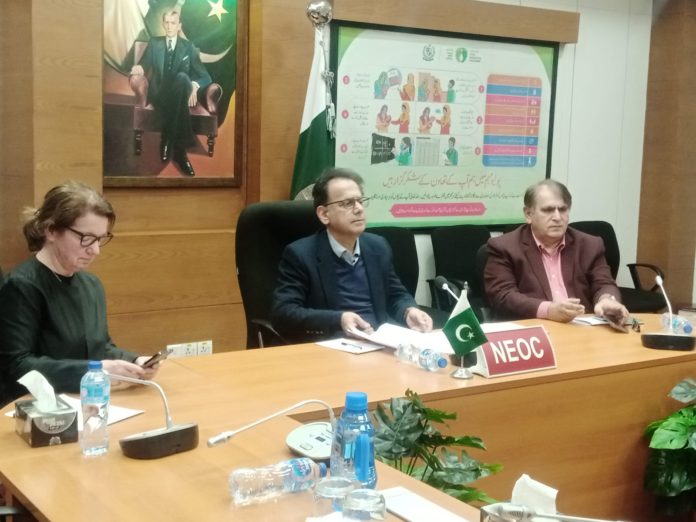ISLAMABAD (ABC): Federal Secretary for Health Iftikhar Ali Shallwani has reaffirmed Pakistan’s commitment to ending polio and called for continued support and stronger global partnerships to help Pakistan reach this key milestone.
The health secretary virtually addressed a special session on polio eradication on the sidelines of 2024’s UNICEF Executive Board meeting through video conference on Thursday. The special session was aimed to shore up support for childhood vaccinations across member states and to mark 50 years of the Expanded Programme on Immunization (EPI) which was launched globally in 1974 to combat communicable diseases through systematic mass vaccination efforts.
Highlighting the instrumental role of mass vaccinations in reducing childhood mortality and protecting millions from diseases like measles and polio, Secretary Shallwani said: “Childhood vaccination rates in Pakistan have significantly increased since the launch of EPI in 1978. Today, endemic polio is restricted to a small region in Southern Khyber Pakhtunkhwa with only six reported cases last year, which is a testament to our progress.”
He added that Pakistan’s target remains zero cases and the country is much closer to this goal than ever before. “Challenges such as insecurity, access issues, and refusals persist, hindering our progress. But our tenacity and resilience, coupled with strong partnerships, drive us forward.”
The health secretary also highlighted the strong synergy and partnership between the country’s EPI and Polio Eradication Programme to reach children with life-saving vaccines, stating that continued support to strengthen EPI is needed to help sustain zero polio after eradication.
In conclusion, Secretary Shallwani called for global solidarity and continued support from partners like UNICEF. “I want to thank UNICEF for being a champion of public health in Pakistan and for standing by us, during the highs and lows. Together, we can make polio eradication a historic legacy.”

